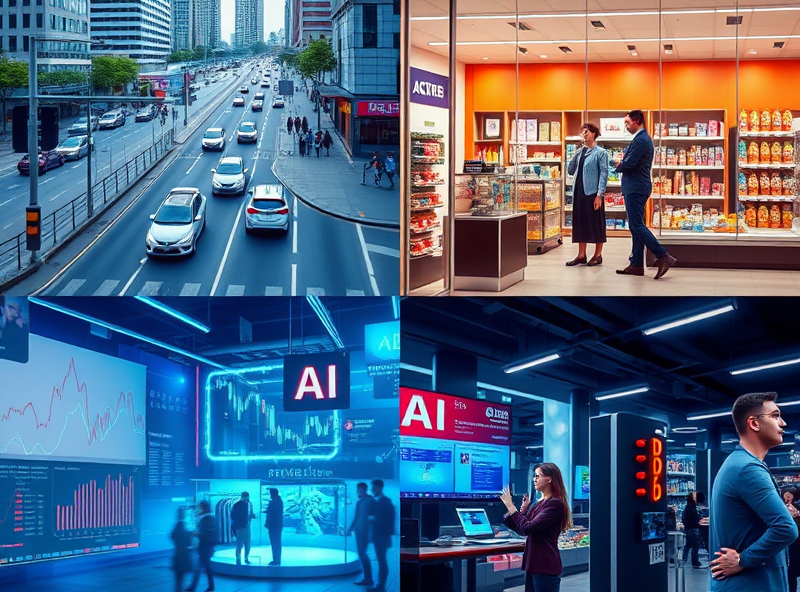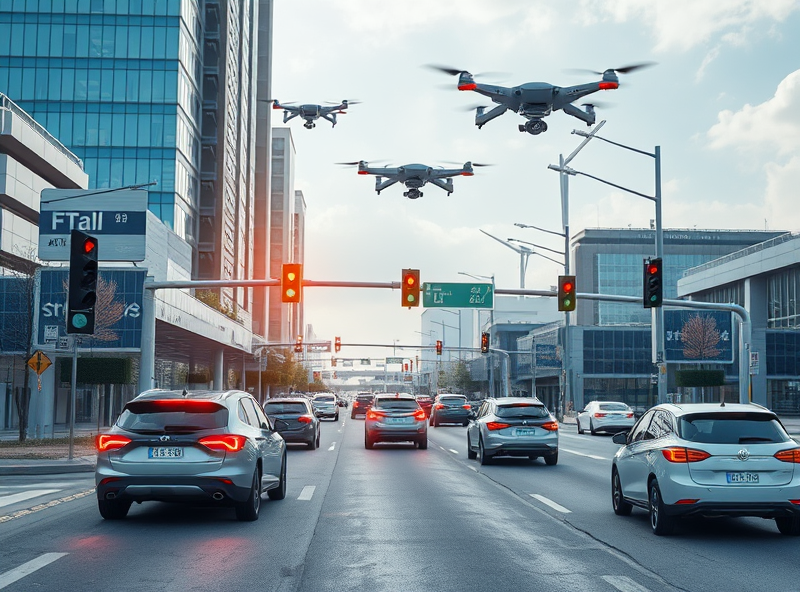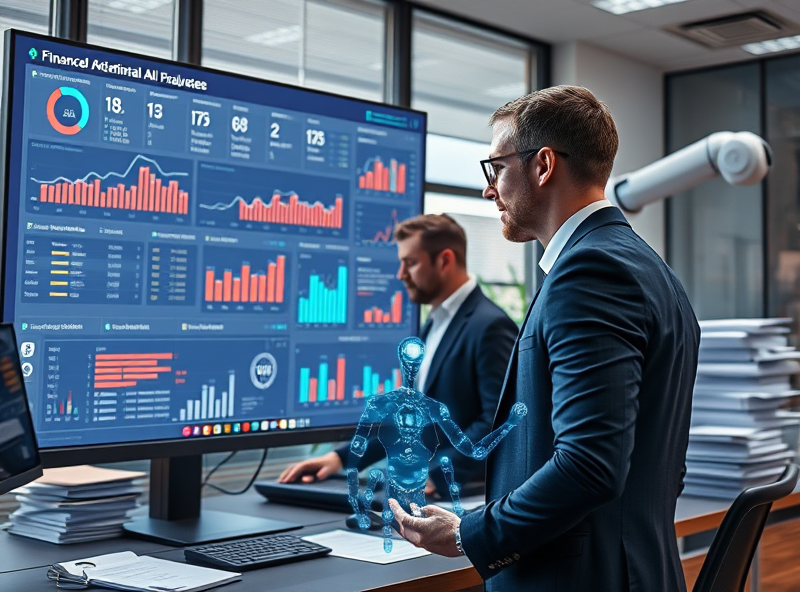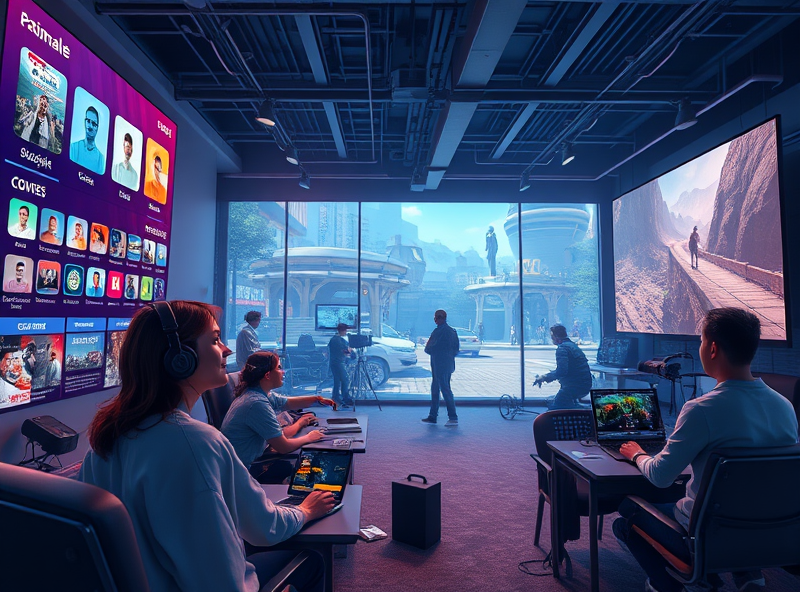
AI Transforming Industries: Practical Applications and Benefits
AI in Transportation

Artificial Intelligence (AI) is revolutionizing the transportation industry in remarkable ways, making travel safer, more efficient, and environmentally friendly. One of the most significant applications is in autonomous vehicles. Self-driving cars use AI-powered systems to process real-time data from sensors, cameras, and GPS to navigate roads, avoid obstacles, and ensure passenger safety. Additionally, AI is optimizing traffic management systems by analyzing traffic patterns and predicting congestion, which helps reduce travel time and fuel consumption. In logistics, AI enhances route optimization for delivery trucks, ensuring faster and more cost-effective shipping. Public transportation is also benefiting, with AI-powered systems improving scheduling, maintenance, and passenger experience. By integrating AI, the transportation sector is not only advancing technologically but also contributing to a more sustainable future.
AI in Retail and E-Commerce

Artificial Intelligence (AI) is revolutionizing the retail and e-commerce industries, making shopping experiences more personalized, efficient, and enjoyable for customers. One of the most significant applications of AI in this space is personalized product recommendations. By analyzing customer behavior, purchase history, and preferences, AI algorithms can suggest products tailored to individual tastes, increasing customer satisfaction and driving sales. Additionally, AI-powered chatbots are transforming customer service by providing instant, 24/7 support, answering queries, and even assisting with purchases. Inventory management has also been enhanced with AI, as predictive analytics help retailers forecast demand, reduce overstock, and minimize waste. Furthermore, visual search technology allows customers to upload images and find similar products online, making the shopping experience seamless and intuitive. AI is not just a tool for businesses; it’s a way to make shopping more convenient and enjoyable for everyone.
AI in Finance

Artificial Intelligence is revolutionizing the finance industry in ways that make our financial lives more secure, efficient, and personalized. One of the most significant applications of AI in finance is fraud detection. AI algorithms can analyze vast amounts of financial data in real-time to identify unusual patterns or anomalies, helping institutions prevent fraudulent activities before they occur. Additionally, AI-powered credit scoring systems are transforming how lenders assess creditworthiness, providing more accurate and fair evaluations. Another exciting development is the rise of robo-advisors, which use AI to offer automated financial advice tailored to an individual’s goals, risk tolerance, and financial situation. These tools make investing and financial planning more accessible and convenient for everyone. Whether it’s enhancing security, improving decision-making, or simplifying investment strategies, AI is undoubtedly reshaping the financial landscape for the better.
AI in Entertainment

Artificial Intelligence is revolutionizing the entertainment industry in ways that were unimaginable just a few years ago. From personalized content recommendations on streaming platforms to AI-generated music and scripts, the possibilities are endless. Streaming services like Netflix and Spotify use AI algorithms to analyze user preferences and suggest content tailored to individual tastes, making entertainment more engaging and enjoyable. Additionally, AI is being used in video game development to create more realistic environments and smarter non-playable characters (NPCs), enhancing the gaming experience. AI-powered tools are also helping filmmakers with visual effects, scriptwriting, and even editing, saving time and reducing costs. For content creators, AI can assist in generating ideas, editing videos, and optimizing content for different platforms. By integrating AI, the entertainment industry is not only improving efficiency but also delivering more immersive and personalized experiences to audiences worldwide.




